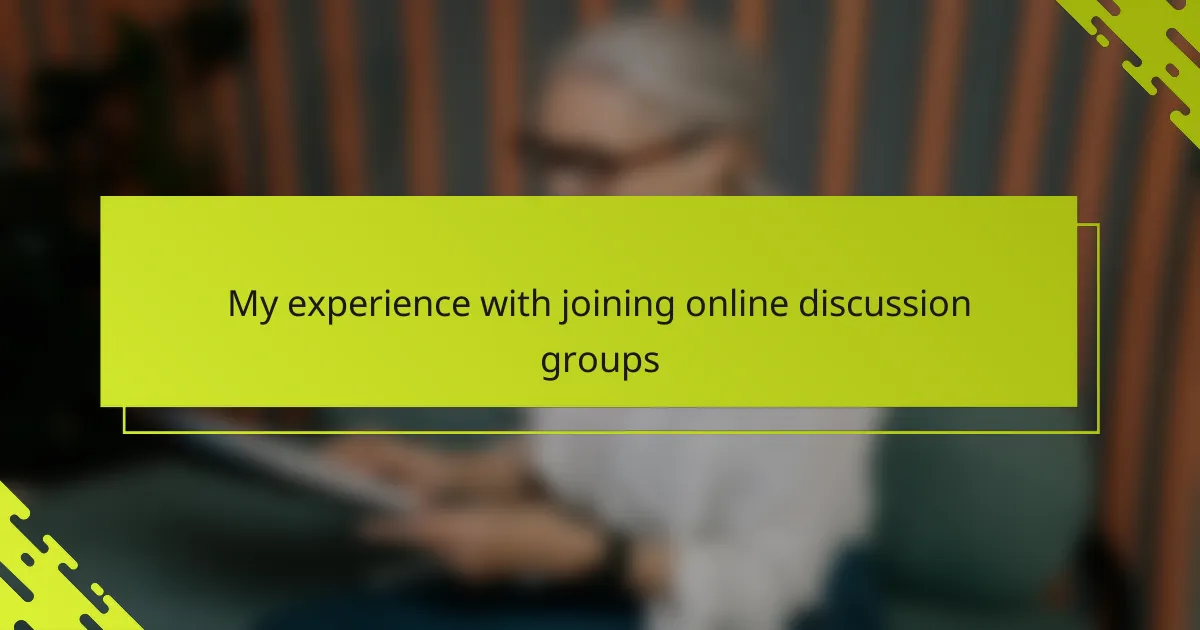Key takeaways
- Online discussion groups foster genuine connections through a blend of anonymity and openness, allowing for honest conversations and shared understanding.
- Finding the right community is essential; it can transform the feeling of belonging from a search into a warm reality based on shared vulnerabilities.
- Effective participation involves mirroring communication styles, starting with small contributions, and being open about personal experiences to encourage deeper connections.
- Challenges like disagreements and feelings of invisibility can be navigated by pausing before responding and consistently engaging with the group to build rapport over time.
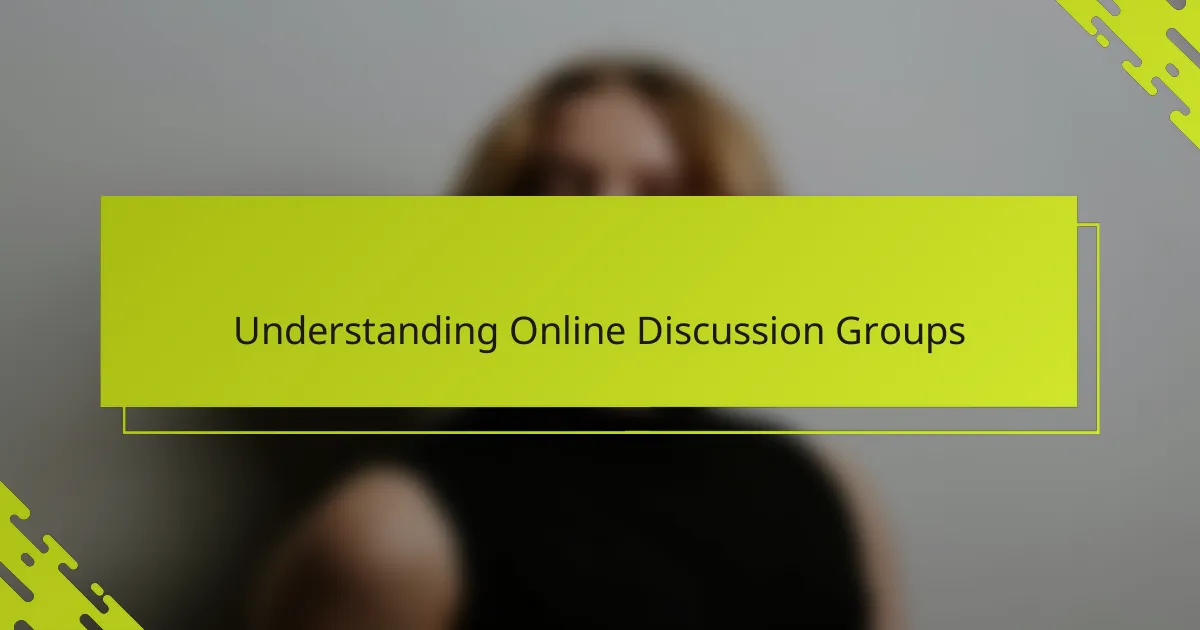
Understanding Online Discussion Groups
Online discussion groups are virtual spaces where people come together to share thoughts, experiences, and support on specific topics. When I first joined one, I was curious about how genuine connections could form through a screen, but I quickly realized these groups can feel surprisingly close-knit. Have you ever wondered what makes some online communities feel like a second home?
What stands out to me about these groups is the blend of anonymity and openness they offer. This dynamic often creates a unique environment where conversations are honest, sometimes raw, but always filled with a shared sense of understanding. It made me reflect on how different online spaces can be from our everyday interactions.
In my experience, understanding the unwritten rules and culture of an online discussion group is crucial. Each group has its own vibe—some are more casual and humorous, while others focus on deep, heartfelt discussions. Tuning into that tone helped me feel more comfortable and truly part of the community.
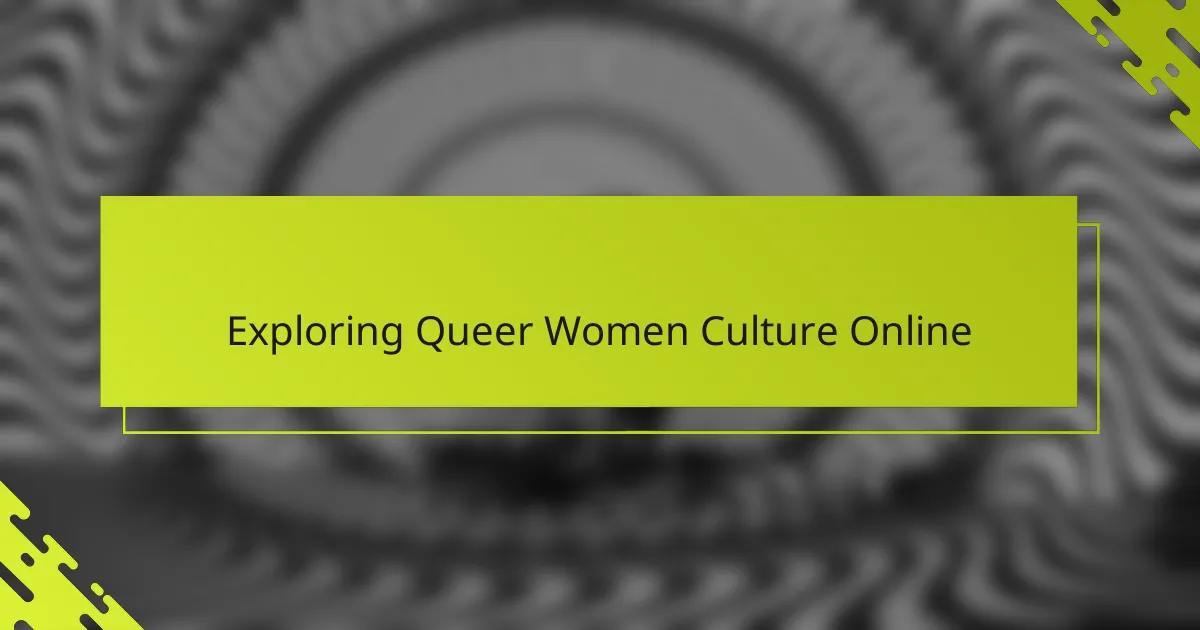
Exploring Queer Women Culture Online
Exploring queer women culture online was like stepping into a vibrant mosaic of stories and identities I hadn’t fully encountered before. I found that these spaces celebrate diversity not just in orientation but in expression and experience, which often sparked reflections about my own journey. Have you ever noticed how seeing others live authentically can inspire you to embrace your own truth more fully?
What surprised me most was the rich history and activism threaded through conversations—these groups aren’t just for support, but also hubs of education and community building. Engaging with others who share similar struggles and triumphs gave me a sense of empowerment I hadn’t expected from a digital space. Sometimes, a single post would resonate so deeply, it felt like a lifeline reaching across the screen.
At times, I also encountered the nuanced discussions about intersectionality—how factors like race, class, and disability shape queer women’s experiences differently. These conversations challenged me to think beyond my own perspective and reminded me that queer culture is beautifully complex. Isn’t it incredible how a few typed words can open up such profound understanding?
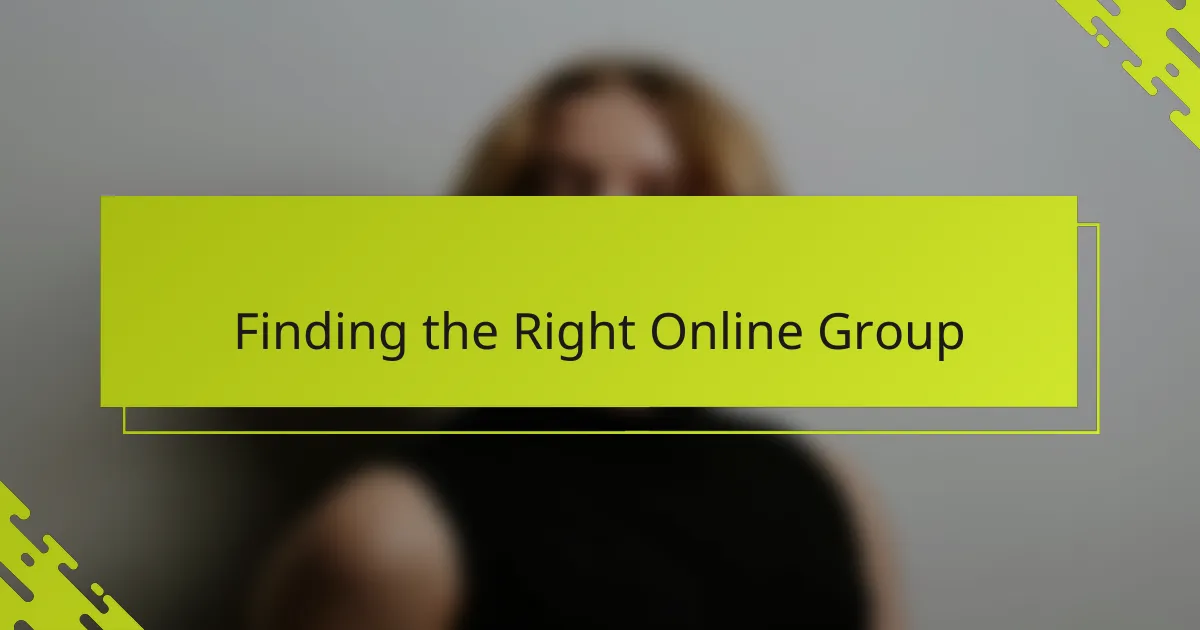
Finding the Right Online Group
Finding the right online group felt a bit like dating—there were plenty of options, but not all of them clicked with me on a deeper level. I remember joining a few spaces that seemed perfect on paper but left me feeling out of sync, almost like attending a party where you don’t know anyone. It made me realize how important it is to listen to that inner feeling of belonging rather than just the group’s stated purpose.
I soon discovered that some groups were more about casual chatter, while others dove straight into complex conversations about identity and activism. Did I want a place to unwind or a space to grow and challenge myself? Asking myself that helped narrow down where I spent most of my time—and where I found the most meaningful connections.
The moment I joined a group where stories felt like echoes of my own, I felt an immediate shift. It wasn’t just about shared labels but shared vulnerability and trust. Have you ever felt that instant warmth when you realize you’ve found a community that truly sees you? That’s the magic of finding the right online group—when belonging turns from a search into a feeling.
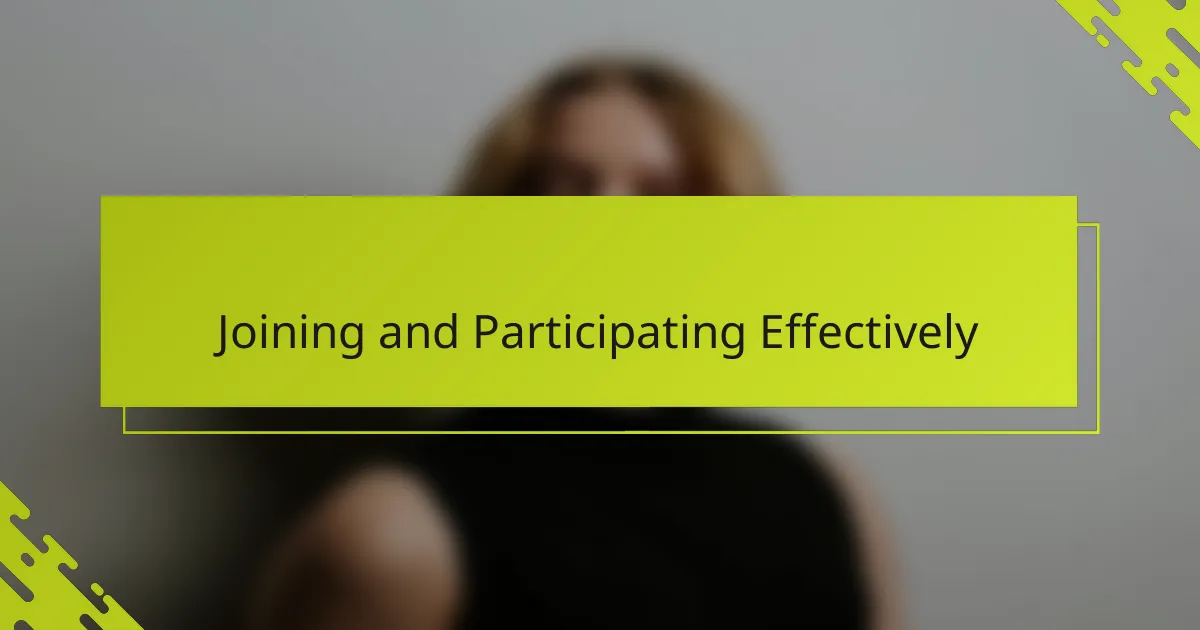
Joining and Participating Effectively
Jumping into conversations right away felt a bit intimidating at first—I wondered if my voice would really add anything valuable. But I learned that starting with small comments or questions not only eased me in but also showed others I was genuinely interested. Have you tried just saying something simple at the beginning? It often opens the door to richer exchanges.
What truly helped me participate effectively was paying attention to how others communicated—their tone, humor, and the topics they emphasized. Mirroring that style made my contributions feel more natural and welcomed. It’s like joining a dance; once you catch the rhythm, moving in step becomes effortless.
At times, I hesitated to share personal stories, worried about how they’d be received. Yet, when I did open up, those moments sparked deeper connections and even support I didn’t expect. Have you noticed how vulnerability can transform a casual thread into a meaningful conversation? That’s the heart of engaging well in these spaces.
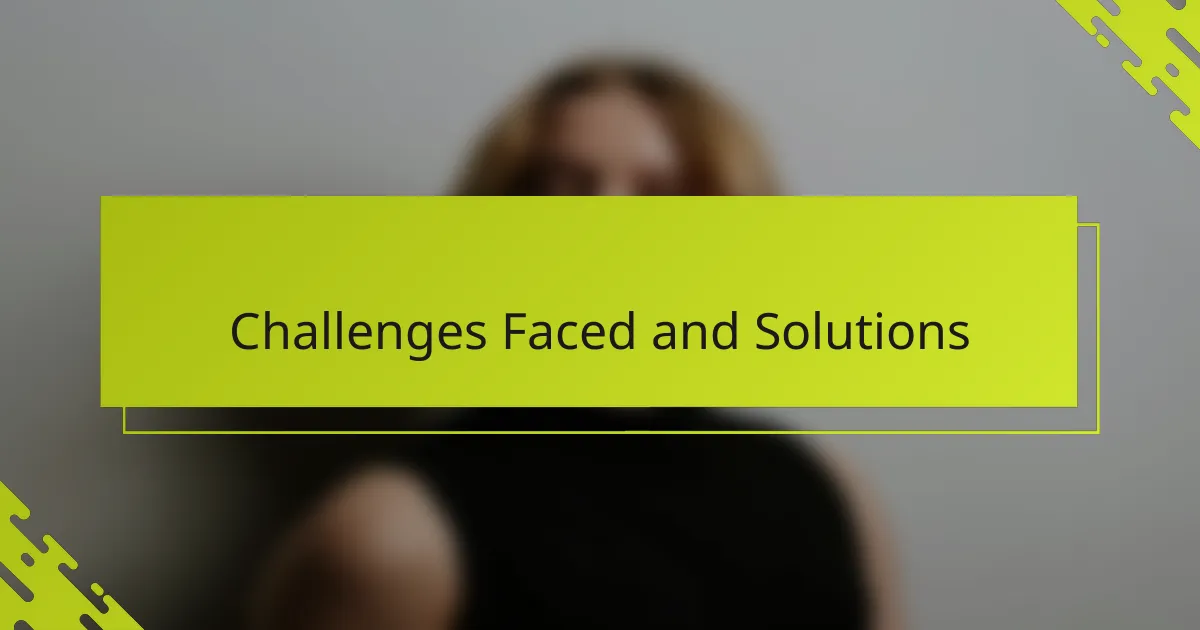
Challenges Faced and Solutions
Navigating the challenges of joining online discussion groups wasn’t always smooth for me. One major hurdle was figuring out how to handle disagreements respectfully without feeling attacked. I found that pausing before responding and reminding myself that diverse opinions enrich the conversation helped me stay calm and engaged. Have you ever felt that moment of hesitation before replying, wondering if your words might stir tension? That little pause can make all the difference.
Another challenge was dealing with the occasional feeling of invisibility when my comments didn’t get much response. It was discouraging at first, but I learned that consistency and genuine interest often lead to deeper connections over time. I started asking open-ended questions or sharing small personal stories, which invited others to respond and gradually built rapport. Isn’t it something how small efforts can transform a quiet thread into a welcoming space?
Privacy concerns also surfaced early on—deciding how much to reveal about myself while protecting my boundaries was tricky. I learned to trust my instincts about what felt safe to share and to use pseudonyms or control visibility settings when possible. Have you ever had that internal debate about balancing authenticity and safety online? Finding that middle ground gave me both freedom and peace of mind within these communities.
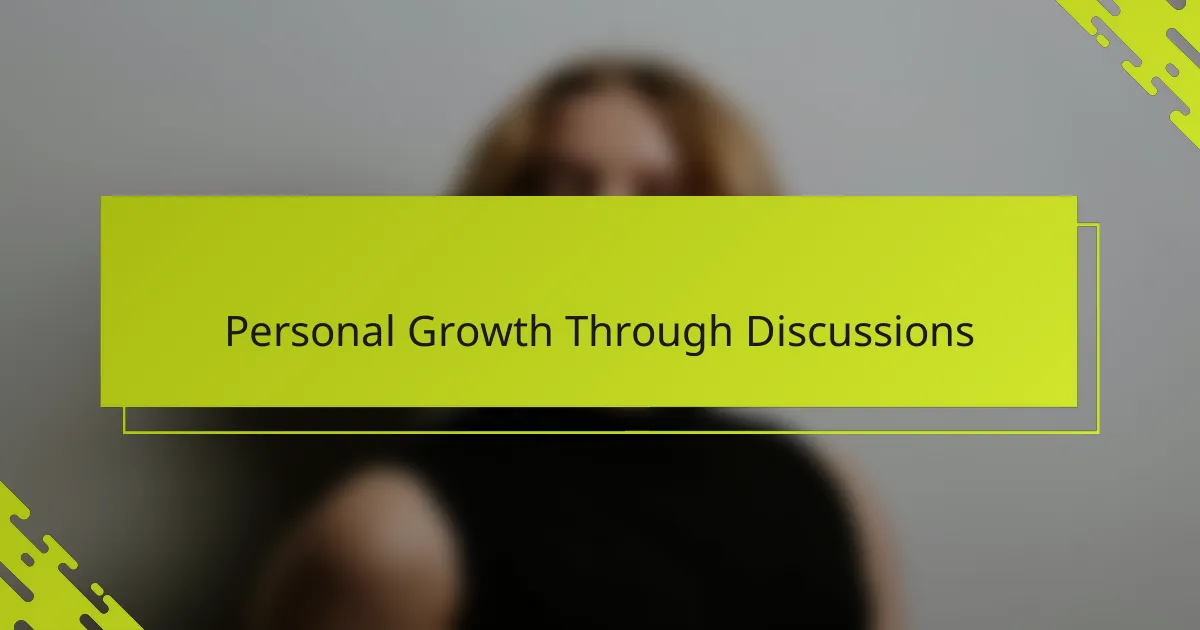
Personal Growth Through Discussions
One of the most surprising ways these discussions fueled my personal growth was by gently pushing me to question my assumptions and expand my worldview. Have you ever noticed how a single comment or story can shift your perspective? I found that engaging with diverse voices challenged me to become more empathetic and open-minded in ways I hadn’t anticipated.
Sometimes, personal growth came from simply being heard. Sharing my experiences and receiving thoughtful responses created a sense of validation that bolstered my confidence. It made me realize that growth isn’t always about big leaps—it can be the small moments of connection that quietly reshape how we see ourselves.
There were also times when the group’s collective wisdom helped me navigate my own struggles with identity and self-acceptance. Reading others’ journeys and reflections gave me practical tools and emotional encouragement. Isn’t it powerful when a digital space becomes a mirror and a guide at the same time?
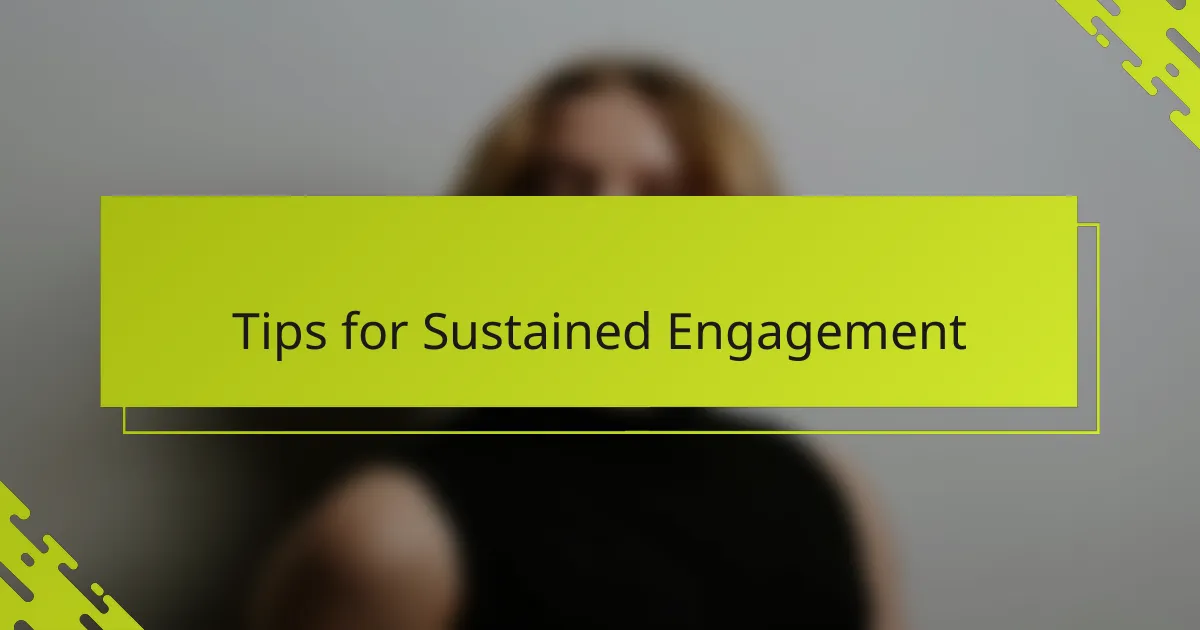
Tips for Sustained Engagement
Staying engaged in an online discussion group takes more than just showing up occasionally. I found that setting small, achievable goals—like commenting at least once a week or responding to someone’s post—helped keep me connected without feeling overwhelmed. Have you ever noticed how just a little consistency can build momentum and make the space feel like a part of your routine?
Another thing that made a difference for me was diversifying my involvement. Sometimes I shared personal stories, other times I asked questions or offered encouragement. Mixing things up kept my participation fresh and prevented burnout. It’s like any relationship—variety and genuine interest keep the connection alive.
Lastly, checking in with the group’s vibe regularly helped me stay attuned to the community’s changing rhythm. When energy dipped or new topics surfaced, adjusting my engagement accordingly made conversations feel more meaningful. Have you ever sensed that ebb and flow in an online space? Riding that wave rather than resisting it made my experience much richer.
